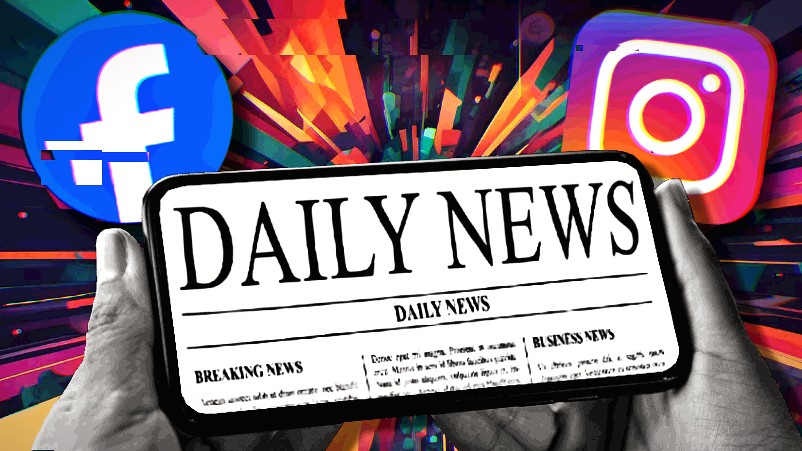Meta barked, Australia blinked: News Bargaining Code to be shelved as Feds prepare possible digital ad tax on Meta, Google, TikTok; transition fund flagged for media, big and small

Publishers of all creeds and scale are close to consensus on the Federal government winding back its earlier aggressive rhetoric to “designate” Meta under the News Bargaining Code, forcing it and publishers into arbitration to land news funding deals. Meta stared down the Federal Government earlier this year, announcing it would not continue payments to publishers and would pull news from its platforms in Australia if it had to. Now the Feds have tasted big tech defiance, a broader levy, tax or licensing fee on Google, Meta and TikTok, possibly around a digital advertising revenue threshold, is what most publishers Mi3 canvassed now broadly expect from the Albanese government – along with a transition fund for news publishers until a mechanism for a tech tax is legislated. But calling it a tax could be a dirty enough word for the powerful tech giants to turn recalcitrant again. So let’s stick with tax.
Coded message
The world-acclaimed but locally-dissed Media Bargaining Code introduced by the Morrison Coalition government in 2021 is all but gone, if the undercurrent from publishers large and small this week plays out.
Earlier this week, the Joint Select Committee on Social Media and Australian Society released its second interim report on Digital Platforms and the Traditional News Media. The committee, led by Senator Sarah Hanson-Young, kicked off in June and has heard from all of Australia’s largest news publishers and received 217 submissions from larger and smaller independent publishing firms and other concerned parties.
The Joint Select Committee’s final report drops on 18 November, but an interim report released earlier this week proposed 11 recommendations, many of which are intertwined with the News Media Bargaining Code.
Key among the committee’s recommendations is an alternative Media Bargaining Code mechanism to tax big tech via a digital platform levy – to most it appears to be aligned with patchy government signals on a “whole of government response” to Meta’s fend-off to the Feds in March, refusing to pay local publishers under bargaining code legislation.
“It feels like everything is leading up to an announcement, like it’s being lined up,” a publishing boss told Mi3 this week.
Indeed, the committee’s interim report recommended a short-term transition fund should be created to help news businesses cope, given Meta’s move and the time required to design a digital platforms or ad revenue levy mechanism.
Perhaps the biggest upside in what comes next is the broader distribution of a big tech tax beyond big media, a feisty and lingering criticism of the News Media Bargain Code.
The committee said a transition fund should have particular focus on supporting small, independent and digital-only publishers, as well as those operating in underserved communities and regional, remote and rural areas.
Given comments in the past year from investment leads at media agencies – they control the allocation of about $8bn in advertising budgets annually – that structural pressures and market conditions would force a consolidation in the number of media suppliers they would engage, an interim fund designed to support journalism and news publishing for smaller players has been enthusiastically embraced by numerous independent publishers Mi3 spoke with.
Interim readies
On most accounts, the lobbying and policy work by a consortium of independent publishers under The Digital Publishers Alliance and its chair Tim Duggan, has made a material impact in Canberra arguing the case for a diverse media industry underpinning news and journalism. Duggan and others including Broadsheet Media, Private Media, The Conversation and We Are Explorers, proposed an interim funding measure which bridged to a later, broader levy by government on tech companies.
“It is very encouraging that the committee has listened to the collective voices of smaller and independent publishers, and can see how important a healthy and diverse independent media industry is in this country,” Duggan said. “We are very happy with the considered commentary and recommendations coming from the Joint Select Committee. Now that the interim report has been released, we'd like to see the government act swiftly to take on board all of the recommendations and implement them.”
Seven of the 11 committee recommendations are linked to evolving the current Media Bargaining Code, which skewed heavily in favour of large publishers like News Corp, Nine Publishing and Seven West Media. The Guardian was the largest beneficiary after News, Nine and Seven under the first Google and Meta deals in 2021 but has remained all but silent in the current dealings. Mi3 has made several attempts in recent months to clarify The Guardian’s position.
Some publishing executives believe key components of the media bargaining code would likely be included in a new policy framework that included a tech company levy, such as the “right to carry news”.
But most, including executives at big publishers speaking privately, acknowledge the code is no longer “fit for purpose” in how funding is negotiated between publishers and the platforms and that it skewed to the big end of town.
“Despite the $600m that has come into the sector as a result of the code, in recent weeks we’ve seen significant redundancies across every major media company as they adapt, not to cyclical changes, but large structural changes that will see even more of their advertising businesses shift to the digital platforms,” Private Media CEO Will Hayward told the committee in a hearing in June.
“With the lion's share of $600m going to the major three media companies, each of them have now tightened their grip on the market with improved technology, products and access to market. And with Meta now likely to ban news from its platforms, the barriers to entry for new entrants will only get higher. It seems extremely likely that without emergency action, Australians, particularly young Australians, will have even less choice and access to news providers in the coming months.”
Capital Brief CEO Chris Janz – previously Nine Publishing CEO who struck an early group advertising guarantee deal with Google when it was Fairfax Media – warned that the implications from Google’s about-face on New Zealand’s attempt at a Media Bargaining Code in recent weeks has been largely missed. “It’s a clear signal that unless there is strong government intervention, the platforms will play by the rules they set,” he told Mi3. “It’s a scary situation.”
What next and when is now on every publisher’s agenda.
Indies sweat
“From what I'm hearing, it’s completely 50-50 on whether or not Meta is going to be designated,” said Scott Purcell, co-founder of man of many. “I can't guess one way or the other. I know a lot of larger media organisations are strongly pushing for it, as they have a lot less to lose. But many smaller publishers are hugely reliant on these social platforms, not only to distribute their content, but also to monetise their content.”
Other independent publishers said they’d given up after watching most of the $250m in platform funding in the first bargaining code deals pour into the biggest publishing companies. ‘I tapped out 12 months ago,” said one. “The cynical approach from government and big media was so self-serving and disappointing. How the tech companies are ever held to account remains to be seen. They just won’t pay.”
Some senior executives at large publishers privately said the media bargaining code needed to broaden its sweep and a new platform levy was probable.
Closing holes
The scenarios on what the Government might table are wide and ranging but they include support for news publishers based on tax breaks or funding based on journalist headcount of perhaps 30 per cent of a salary.
“The intention of the News Media Bargaining code was terrific but flawed in execution and structure,” Broadsheet CEO Nick Shelton said. “The platforms exploited the weaknesses in the code in that no-one has actually been designated after the platforms took an aggressive stance. The government appears to be reframing and amending to they can’t do that and where the government appears to be heading now is great in regards to broader distribution and support for publishers that are not just the very biggest.”
On timing, communications minister Michelle Rowlands gave some hints earlier this year that a policy response on media and tech might come during the annual mid-year economic and fiscal outlook (MYEFO), typically outlined in December or January. There are rumblings that a federal election by mid-next year may alter the MYEFO timing – but some remain confident a policy announcement will come by Christmas.
“There’s two more sitting weeks in parliament this year,” another publisher told Mi3. “I think you’re safe. Something will happen by the end of the year.”


